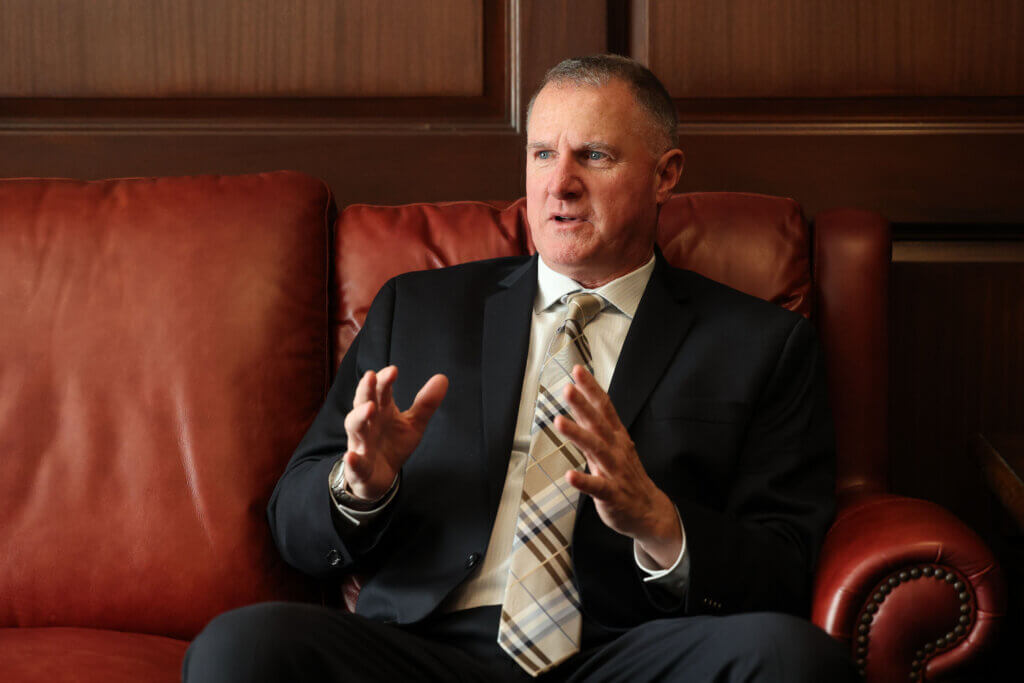The new president of the nation’s oldest National Guard association said his top focus will be working with lawmakers to get guardsmen healthy and keep them that way.
Retired Maj. Gen. Frank McGinn took over as president of the National Guard Association of the United States Feb. 8. He spent his military career in roles with the Massachusetts Army National Guard and Army National Guard, with a civilian career in law enforcement in Massachusetts and the Washington, D.C. area. He also served 15 years on the association’s board.
McGinn, who first enlisted in the Massachusetts Army National Guard in 1981 before attending Officer Candidate School, spent most of his service time as a so-called traditional guardsman. That means he knows what it’s like for today’s guardsmen as they try to navigate life and military service demands, he said.
“Have a family, try to coach your kids in sports — I lived that out my whole career,” he said. “I’m empathetic towards our younger ranking or our newer members who are dealing with balancing Guard life with a civilian career.”
The association has a team of lobbyists who work with lawmakers to shape National Guard-friendly legislation on a wide variety of issues, including the formation of a Space Guard and at least a dozen equipment requests across the Army and Air guards, officials there said.
But McGinn said his top priorities for the association focus on full-time, zero-cost healthcare for guardsmen, regardless of their activation status.
Currently, guardsmen in an active-duty status or recently off orders are typically covered through the same healthcare options available to active-duty troops. Healthcare coverage for activated Guard families through TRICARE can carry additional fees, depending on the plan used. Drilling guardsmen and their families typically pay more for coverage and have the option to purchase coverage under TRICARE Reserve Select and TRICARE’s dental program.
But many guardsmen don’t purchase the benefit and instead go uncovered. The association estimates 130,000 guardsmen skip that coverage while also not accessing a health plan through another source, such as a civilian employer.
The result, McGinn said, is stymied medical readiness and poor mental health triggered in part by a lack of consistent access to care. To solve that, the association wants Congress to grant every guardsman free TRICARE Reserve Select and dental coverage, and with it no-cost healthcare.
“If you can’t access the providers, you’re not going to be able to get the assistance you need,” he said. “It certainly is a readiness issue.”
McGinn knows that’s a big ask, and unlikely to pass any time soon thanks to its about $700 million annual price tag. A bill that would make the change was introduced in the House in June and referred to the Armed Services Committee, where it has seen no further action. He said the association will consider instead asking for full dental benefits first, which would carry a lower price point, and then later work towards full healthcare coverage.
“If we continue, I think we’ve got a solid argument,” he said. “I think we just need to kind of continue to beat the drum and explain the benefits of it.”

